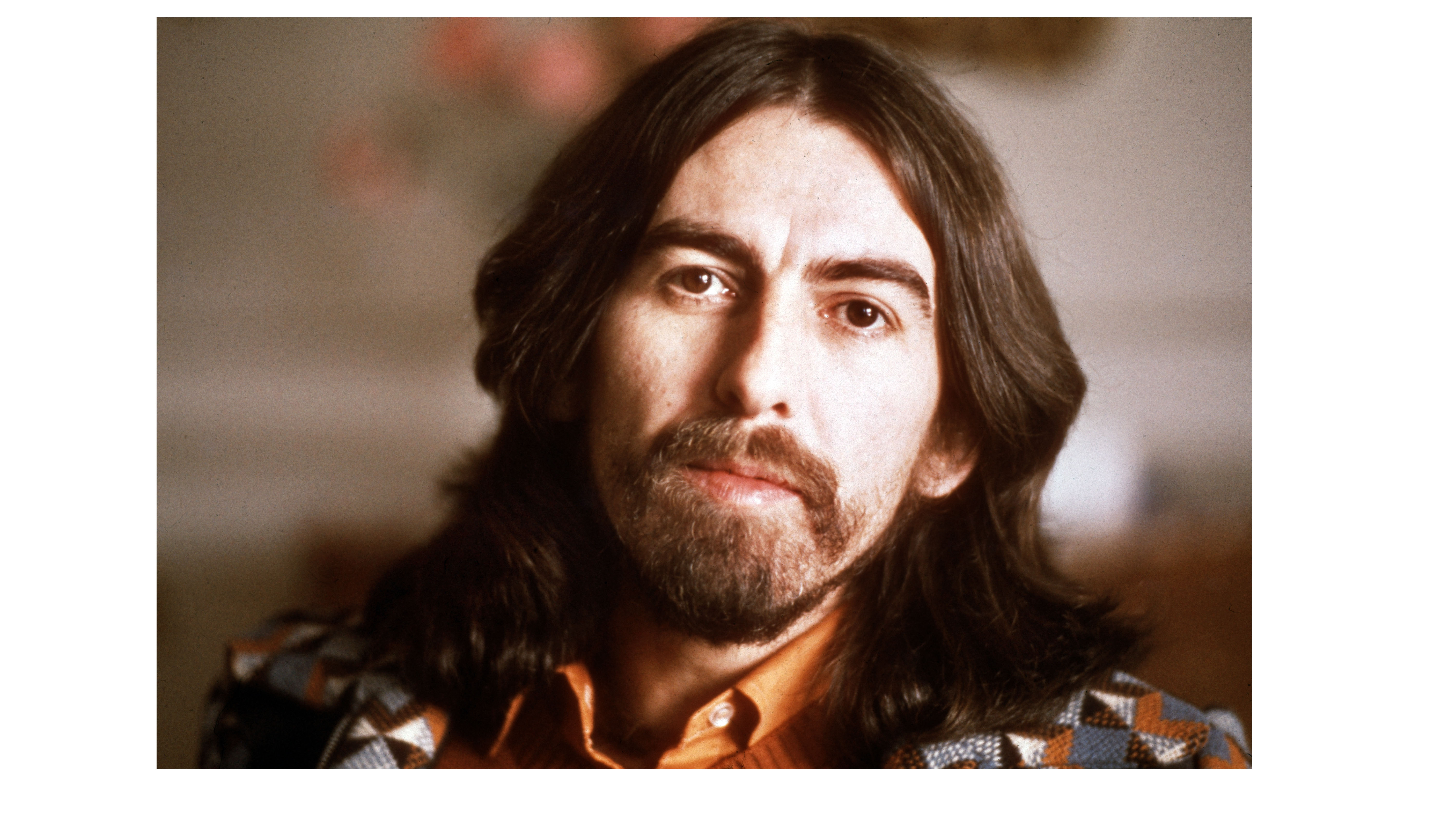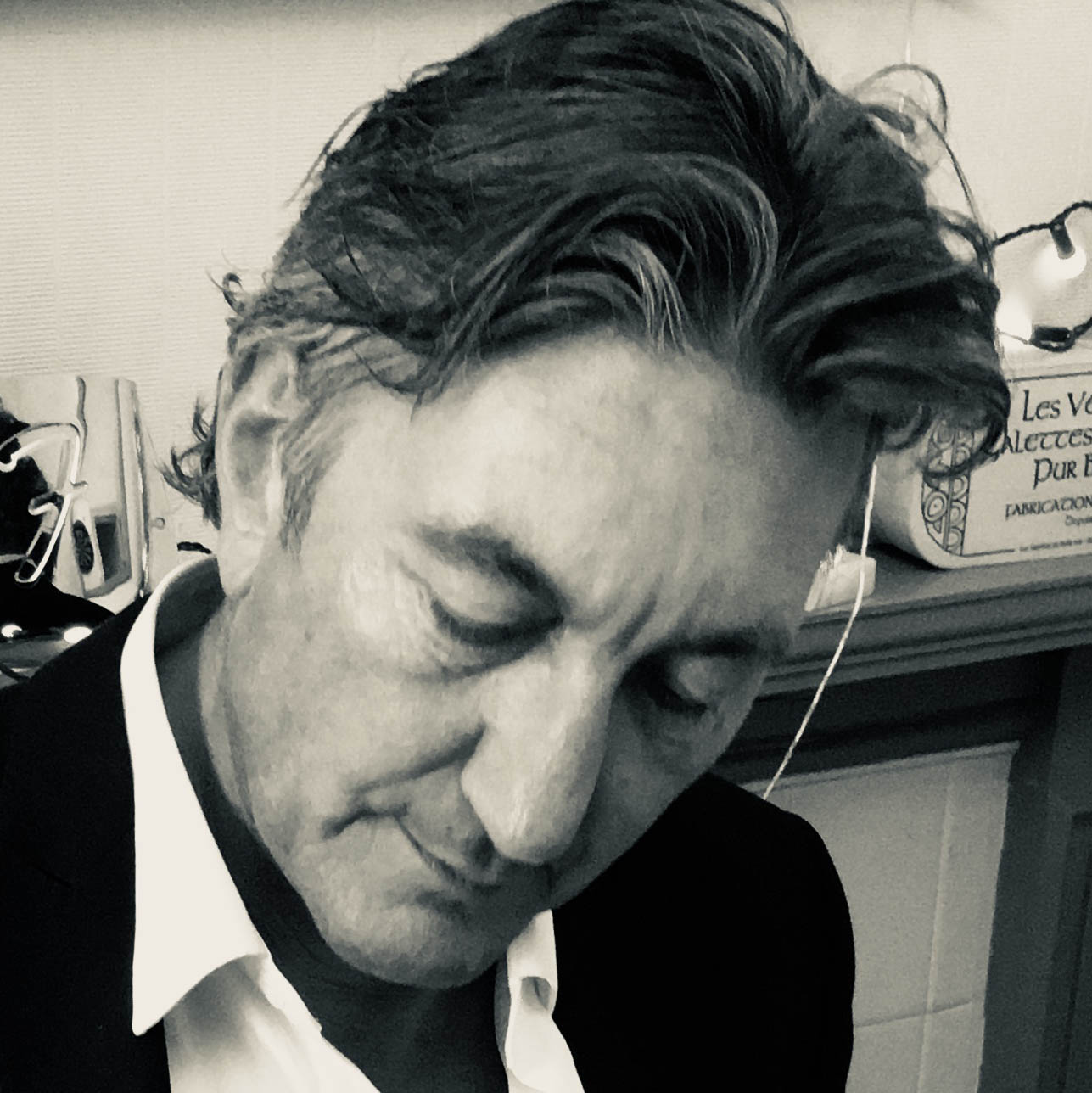“I’m not a great lyricist or songwriter or producer. It's when you put all these things together — that makes me”: The 5 George Harrison post-Beatles songs you need to hear
Freed from the creative confines of The Beatles, George Harrison set out to realise his true creative potential. Here are five of his finest works…

Want all the hottest music and gear news, reviews, deals, features and more, direct to your inbox? Sign up here.
You are now subscribed
Your newsletter sign-up was successful
George Harrison passed away on this day, 29 November, 2001.
There’s a memorable scene in Peter Jackson’s 2021 documentary Get Back where a microphone concealed in a pot of flowers in the dining room at Twickenham Studios picks up a discussion between John Lennon and Paul McCartney. It’s early afternoon on Monday 13 January, 1969 and the pair are discussing the sudden departure of George Harrison from The Beatles and an unsuccessful meeting the previous day to try and resolve the situation.
“It’s a festering wound and yesterday we allowed it to go even deeper and we didn’t give him any bandages,” observes Lennon drolly. “I do think that he’s right,” concedes McCartney, “that’s why I think we’ve got a problem now.”
Harrison left after McCartney allegedly accused him of “vamping” on the rehearsals for the song Get Back. But there was a deeper issue at stake. By then Harrison had emerged as a songwriter of real merit. Wedged between two mercurial talents, both unable to rescind creative ground, he doggedly and delicately chose his moments to push his own material forward.
The Beatles split on 10 April 1970 sparked creative emancipation for George. On 27 November that year, he released All Things Must Pass, his third solo album and the first ‘true’ triple album in rock history. It’s a stunning, sprawling work of real breadth and ambition, enhanced by George’s distinctive slide guitar work. He released 12 solo albums in his life, but All Things Must Pass is arguably the finest. The album was a critical and commercial triumph, reaching No. 1 on both sides of the Atlantic.
In 1987, he released the platinum-selling album Cloud Nine and one year later, formed The Travelling Wilburys with Jeff Lynne, Bob Dylan, Roy Orbison and Tom Petty. They released two critically acclaimed albums. “George absolutely adored the Wilburys,” recalled Tom Petty. “That was his baby from the beginning.”
In 1994, Harrison collaborated on The Beatles Anthology project , which included recording Free As A Bird (1995) and Real Love (1996), two new Beatles songs built around solo vocal and piano tapes recorded by John Lennon. “I hope somebody does this to all my crap demos when I'm dead,” quipped Harrison, “make them into hit songs.”
Want all the hottest music and gear news, reviews, deals, features and more, direct to your inbox? Sign up here.
While Harrison may not have possessed the same hook-laden sensibilities of John and Paul, his songwriting had a real beauty and depth. "It may seem a funny thing to say,” he once recalled. “It's just like, I write lyrics and I make up songs, but I'm not a great lyricist or songwriter or producer. It's when you put all these things together — that makes me."
1. All Things Must Pass – All Things Must Pass (1970)
Eastern philosophy meets Western pop sensibilities on this song, which was originally recorded by Harrison on his 26th birthday as a demo for The Beatles. Like Clapton, Harrison was hugely inspired by Music From The Big Pink, the 1968 debut album by The Band. In late 1968, Harrison visited Woodstock and jammed with The Band. In 1987, he told journalist Timothy White that his starting point for All Things Must Pass was The Weight, a song that “had a religious and a country feeling to it”.
On 10 January 1969, Harrison presented All Things Must Pass to The Beatles but it was ultimately rejected.
He gave the track to Billy Preston to record and then decided to record it himself. Sessions took place at Abbey Road Studios between 26 May and early June 1970, with Eric Clapton, bassist Klaus Voorman, pianist Bobby Whitlock and drummers Jim Gordon and Ringo Starr as the early nucleus.
When it came to the guitars chosen to use on the album, Harrison and Clapton kept it simple. "For George, it was Stratocaster time," Klaus Voormann told //Sound And Vision// in 2021, referring to Harrison’s hand-painted 1961 Fender Sonic Blue Stratocaster, dubbed 'Rocky'. “And Eric played a Les Paul, sometimes switching to a Strat, as well. For acoustic guitar, Harrison played a Harptone. He was playing these all the time. They're a very loud, hard rhythm guitar, compared to Martins, which are more mellow."
All Things Must Pass is a soulful, soaring track, with lyrics based on a translation of part of chapter 23 of the Tao Te Ching. The death of Harrison’s mother in July 1970 lent an added poignancy to this majestic composition.
2. My Sweet Lord - All Things Must Pass (1970)
One of Harrison’s most iconic solo efforts that reached No. 1 in 15 countries across the world. Once again, his spirituality informs the lyrics. The top-line melody on the chorus is set against a blissfully simple A-Em chord sequence.
The track was recorded at Abbey Road Studios on 28 May 1970 and Harrison assembled a huge cast of musicians. There are five guitarists playing acoustics on the song: Harrison, Eric Clapton, Peter Frampton, and Badfinger’s Pete Ham and Joey Molland. John Barham arranged the strings, which consisted of eight violins, eight violas, four cellos and two double basses.
My Sweet Lord must have taken about twelve hours to overdub the guitar solos
Phil Spector
Around two minutes in there is a key change from E major to F#major, which pushes Harrison’s vocals and heightens the impassioned delivery. The real standout element on the track though is his masterful slide playing, which is the real sonic signature.
According to Phil Spector, who co-produced the track, Harrison was an utter perfectionist in the studio. “My Sweet Lord must have taken about twelve hours to overdub the guitar solos,” recalled Spector. “He must have had that in triplicate, six-part harmony, before we decided on two-part harmony. Perfectionist is not the word ... He was beyond that.”
For all its merits, the success of My Sweet Lord was overshadowed a few months after its release when Harrison was sued for copyright infringement by the publisher of He’s So Fine, a 1963 hit for girl group The Chiffons. On 31 August 1976, Harrison was found guilty of “subconsciously” plagiarising He’s So Fine, which was written by Ronnie Mack.
"I wasn’t consciously aware of the similarity between He’s So Fine and My Sweet Lord when I wrote the song," wrote Harrison in his autobiography I Me Mine. "Although when my version of the song came out and started to get a lot of airplay, people started talking about it, and it was then I thought, 'Why didn’t I realise?' It would have been very easy to change a note here or there, and not affect the feeling of the record."
3. Isn’t It A Pity – All Things Must Pass (1970)
George Harrison never lost faith in Isn’t It A Pity, despite it winding up on The Beatles’ pile of rejected songs on numerous occasions. He originally presented it to the band on the 1966 Revolver sessions and engineer Geoff Emerick recalls him putting it forward for Sgt Pepper. Two years later it was roundly rejected for the Get Back sessions in January 1969. In a taped conversation from those sessions, Harrison reminded John Lennon that he had vetoed Isn't It A Pity three years earlier, adding that he was considering offering the song to Frank Sinatra.
The song fits seamlessly within the themes of spiritual salvation and friendship that pervade the All Things Must Pass album. It’s a powerful, ominous ballad, with a timeless message. “Isn't It A Pity is about whenever a relationship hits a down point,” Harrison explained in his 1980 autobiography I Me Mine. “It was a chance to realise that if I felt somebody had let me down, then there's a good chance I was letting someone else down."
It’s an anthemic and deeply moving ballad that has been described as the emotional and musical centrepiece of the All Things Must Pass album. When he finally recorded it, he paired it with My Sweet Lord to create a powerful double A-side debut single. The song also provided a showcase for his elaborate slide guitar patterns.
Throughout the album sessions, Harrison and Clapton’s guitar amps were set up in the middle of the room. Clapton was keen to play through a small 5-watt Fender Champ. "It was a time when they were asking, 'Are we gonna use that little Champ amp, or are we gonna take a proper amplifier?’," recalled Klaus Voorman, in an interview with Sound & Vision. "Because they were all crazy about those Champ amps. Eric came up with this, and everybody went, 'Oh, yeah, Champ amp!'"
4. Give Me Love (Give Me Peace On Earth) – Living In The Material World (1973)
When released as a single, this track reached No. 1, nudging Wings off the top slot. On Living In The Material World, Harrison abandoned the vast sonic soundscapes of Phil Spector’s production opting for a more minimal sound with a tightly-knit core of musicians – drummer Jim Keltner, bassist Klaus Voorman, pianist Nicky Hopkins and organist Gary Knight.
Harrison described the song as "a prayer and personal statement between me, the Lord, and whoever likes it".
His voice has a nice rasp to it, suggesting he’s already attempted a few takes. There’s an upbeat yet soothing feel to the track. Production is lean with some nifty slide guitar work from Harrison.
His acoustic guitar and Hopkin’s piano are prominent but the drums are way down in the mix. Legendary session drummer Jim Keltner recalled his contribution on the song to Uncut in 2023: "The drums are kind of subdued, but I was playing a very busy little syncopated part, trying to play with the guitar – and George was so easy to play with. When we finally got the take, I remember listening and thinking, I wouldn't have got away with that with anybody else. Any other producer would probably have said, ‘Okay, that's cool, now let's have a proper backbeat and nail it down’."
5. Handle With Care – The Travelling Wilburys (1988)
A flawless slice of power pop and one that provided the impetus for the formation of The Travelling Wilburys, the informal supergroup consisting of Harrison, Jeff Lynne, Bob Dylan, Roy Orbison and Tom Petty. The track has everything: unforgettable hooks, an enigmatic descending bass line, a soaring bridge and some sharp, memorable lyrics; “I've been fobbed off, and I've been fooled / I've been robbed and ridiculed / In daycare centres and night schools / Handle me with care.”
The song was originally recorded as a throwaway b-side until his label, Warner Bros, intervened. Harrison contacted Lynne, who was working with Orbison at the time. Dylan was roped in when they decided to use the garage studio at his house in Malibu to record the track. Petty became involved only when Harrison dropped by his house to retrieve a guitar.
The track was released as a single on 17 October 1988 and became the Travelling Wilburys’ most successful single, reaching No. 21 in the UK, No, 45 in the US and top five in Australia and New Zealand.

Neil Crossley is a freelance writer and editor whose work has appeared in publications such as The Guardian, The Times, The Independent and the FT. Neil is also a singer-songwriter, fronts the band Furlined and was a member of International Blue, a ‘pop croon collaboration’ produced by Tony Visconti.









